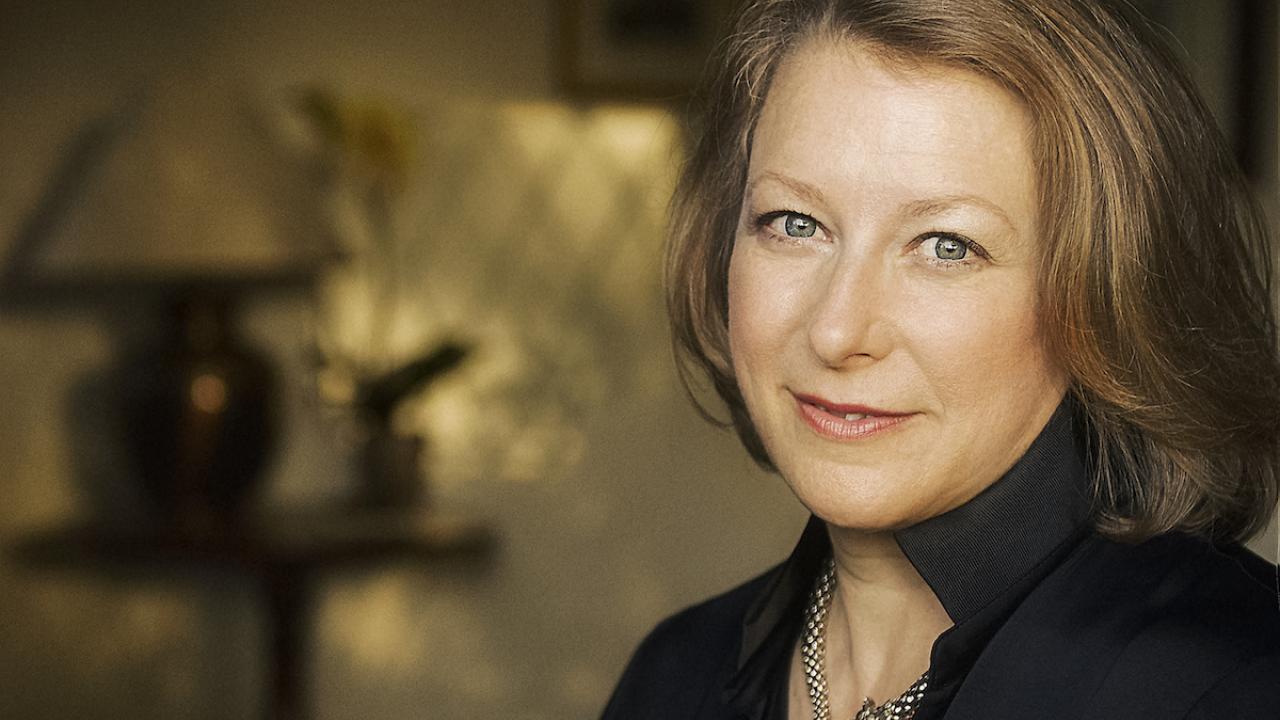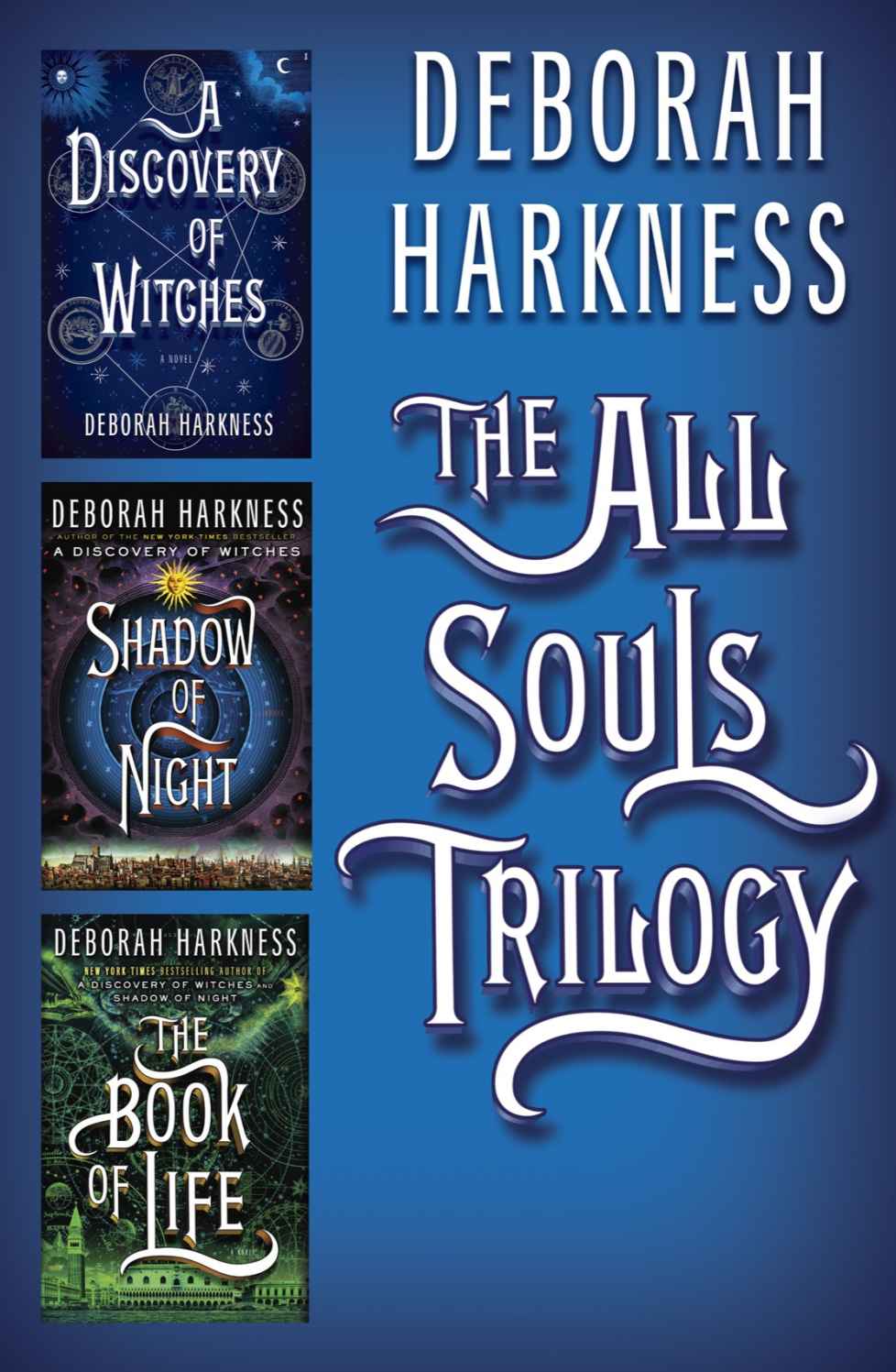
Deborah Harkness
Historian brings authenticity to bestsellers about witches and vampires.
 Deborah Harkness is the author of the best-selling All Souls Trilogy, about scholar and reluctant witch Diana Bishop, whose discovery of an enchanted manuscript sets loose an underworld of witches, vampires, and daemons. Among them is the vampire and scientist Matthew Clairmont, who has long been searching for the same long-lost manuscript. The books — A Discovery of Witches, Shadow of Night, and The Book of Life — have been praised for their rich and accurate historical and literary detail.
Deborah Harkness is the author of the best-selling All Souls Trilogy, about scholar and reluctant witch Diana Bishop, whose discovery of an enchanted manuscript sets loose an underworld of witches, vampires, and daemons. Among them is the vampire and scientist Matthew Clairmont, who has long been searching for the same long-lost manuscript. The books — A Discovery of Witches, Shadow of Night, and The Book of Life — have been praised for their rich and accurate historical and literary detail.
That should come as no surprise: Harkness earned a doctorate in history from UC Davis in 1994 and was an assistant and then associate professor in the history department from 1997 to 2004. Now a history professor at the University of Southern California, Harkness is a widely respected historian of science and medicine from antiquity to today. She is also executive producer of a television series based on A Discovery of Witches.
We recently caught up with Harkness to talk about her time at UC Davis, teaching, research, and supernatural beings.
Did your research while at UC Davis inspire the novels?
My time as a student and faculty member certainly informed every word in the books. I’ve been researching and studying the history of science and magic since 1982, so my time at Davis was part of a much longer journey.
Where at UC Davis would the characters in your novels be found?
Diana would of course hang out at the horse barns, as I did when I was a student. I imagine the daemons would love the Quad, which is full of life and energy. As for the vampires, let’s face it: Davis is a definite haven for coffee lovers. They would either be drinking espresso or sitting in on viticulture and enology lectures hoping to taste some wine.
Do you stay in touch with your UC Davis colleagues and students?
I stay in touch with both undergraduate and doctoral students. Many of them are engaged in education in some way and I love hearing about their adventures. My colleagues Fran Dolan and Margie Ferguson in the English department are kept up to date on all my strange activities. Fran has been particularly generous as a keen-eyed and erudite first reader for all my novels. She is perhaps the only other person on the planet who unfailingly gets all of my scholarly references, buried “Easter eggs,” and the historical arguments I’m making (albeit in a fictional work).
How do you make history classes engaging?
I believe, first and foremost, that history is a collection of stories we tell ourselves about the past. It seems unhelpful to approach history in any other way, or to presume that we have the “correct” story or the “factual” story. I believe that this approach builds empathy and understanding, two of the greatest boons of a humanistic education.
Do your students know about your books and do you ever get “student-fans” in your classes?
I’m sure some of them know, but they are very respectful of the fact we are in a scholarly environment and that we are all there to learn and collaborate. Occasionally, after grades are submitted, they return to my office hours with books to sign for their relatives. This is usually the first time we ever talk about the books.
Best witches and vampires in popular culture?
I don’t really read modern fiction or watch much television — I’m too busy writing my own stories. I liked the movie Practical Magic — but I’m dating myself when I say that. And I adore Buffy The Vampire Slayer, especially the vampire Spike.
Any magical power you’d like to have?
Flight.
What are your current academic projects?
I’m studying domestic arrangements for science in the 17th-century Atlantic World (the places and people bordering the Atlantic Ocean). I’m also researching oracles, though I’m not sure what I hope to discover as yet. I suppose, as usual, I will know it when I find it.
— Jeffrey Day, content strategist in the UC Davis College of Letters and Science, interviewed Deborah Harkness for the fall 2019 issue of the College of Letters and Science Magazine.
